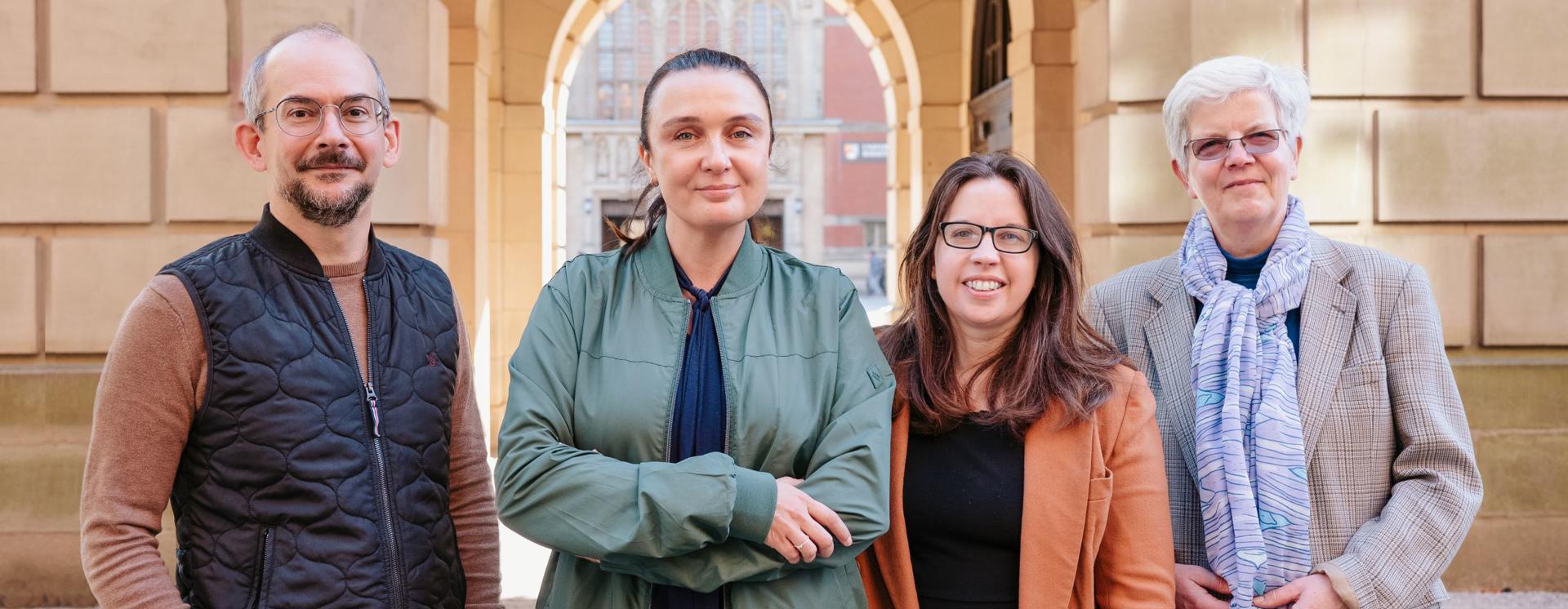MSA Memory Scholars at Risk: Maryna Rusanova
 We are pleased to report that our first MSA’s Memory Scholars at Risk Fellow, Maryna Rusanova, is working on the research project Antisemitism in Post-Migrant Britain at the University of Birmingham.
We are pleased to report that our first MSA’s Memory Scholars at Risk Fellow, Maryna Rusanova, is working on the research project Antisemitism in Post-Migrant Britain at the University of Birmingham.
This study investigated the connection between perceptions of history and attitudes towards antisemitism. Existing studies indicate a division in the 20th-century memory in Europe. Western Europeans tend to prioritize the Holocaust in their collective memory (Assmann, 2012; Leggewie, 2021). However, after the fall of communism, political figures and civil society representatives from Central, East, and Southeast European nations contested this focus, highlighting the importance of commemorating victims of Stalinism (e.g., Mälksoo, 2009; Neumayer, 2015). Surveys on a large scale reveal variations in the prevalence and nature of antisemitic attitudes across Europe, hinting at a potential correlation with diverse understandings of the Holocaust and World War II (Kovács & Fischer, 2021).
Their research takes a distinct approach to exploring the possible link between Holocaust memory and antisemitism. We focus on individuals relocating from Eastern European countries to Western Europe, particularly examining antisemitic attitudes among migrants from Central, East, and Southeast Europe residing in the UK. This demographic is underrepresented in antisemitism research, as previous studies centered on migration have predominantly concentrated on individuals from Muslim-majority backgrounds.
Interested? Check out the full article on their project.
Researchers: Professor Sara Jones (PI), Dr Sarah Hall, Dr Julian Hoerner, Dr Maryna Rusanova, Dr Ewa Tartakowsky, Dr Isabel Wollaston
Maryna Rusanova is an Associate Professor of the Department of Political Science and Law at the Lugansk Taras Shevchenko National University (LTSNU). After the occupation of Lugansk by Russian troops in 2014, Maryna’s university was evacuated to Starobilsk in the Lugansk region of Ukraine.
Maryna’s colleagues, knowing that she was researching the problem of antisemitism, sent her information about the Memory Studies Association “Memory Scholars at Risk” fellowships. “I had wanted to investigate the problem of antisemitism in my PhD thesis, but access to most of the archives was closed, and I was told it wasn’t possible. I decided to study British policy in Palestine instead,” Maryna explains.
The MSA put Maryna in touch with the Institute for German and European Studies which had expressed an interest in supporting a Ukrainian scholar through the program and who could provide matched funding. Maryna’s work connected most closely with that of Professor Sara Jones, who is an established Memory Studies scholar and whose work explores the connections between historical memory and contemporary political attitudes. Sara says: “After the Russian invasion of Ukraine, I felt helpless and really wanted to do something concrete. The MSA fellowship program provided an opportunity to support a scholar at risk and to work on a really interesting project that connects perfectly with my current research”.
For the full story, check out these articles: MSA’s Article, University of Birmingham’s Article.

From left: Dr Klaus Richter, Dr Maryna Rusanova, Professor Sara Jones and Dr Ruth Whittle. Photo: University of Birmingham